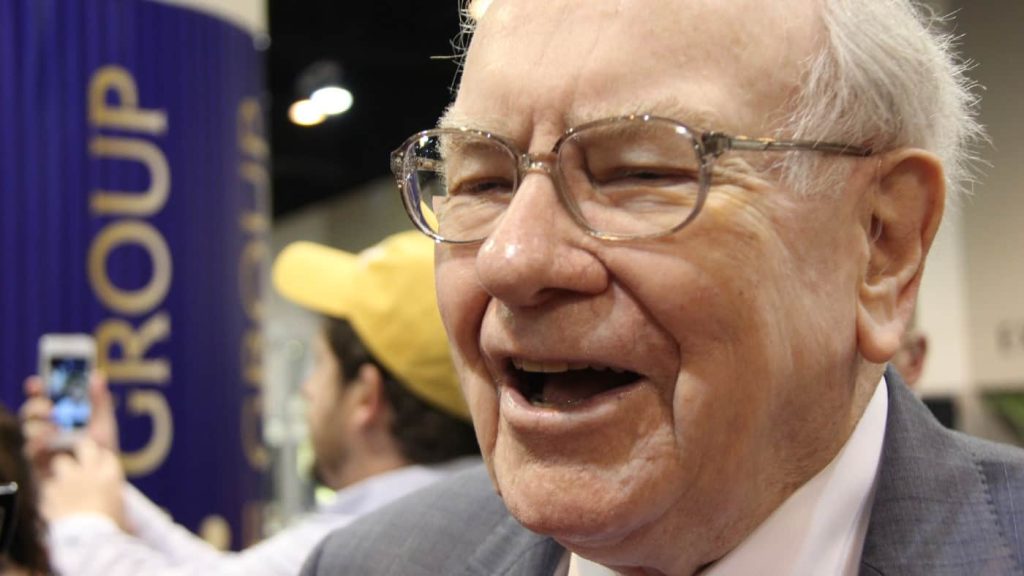Warren Buffett’s done brilliantly in nervous markets. Here’s why!


There is a growing sense of fear in some parts of the market and a lot of stock market participants are becoming increasingly nervous about what coming months might hold. Yet, when markets have waivered in the past, billionaire Warren Buffett has often done very well.
That is, in part, because of how he thinks about the market.
Focusing on buying into strong businesses
Stock market prices can move up and down.
For traders who simply want to buy a share then sell it on for a higher price, sudden market moves can be alarming â or exciting.
But Warren Buffett is not a trader. He is an investor.
Buffettâs approach is to try and buy stakes in what he sees as great businesses, when he can do so at an attractive price.
When there is a stock market crash, there can sometimes be a good buying opportunity for shares in the sort of proven blue-chip businesses favoured by Warren Buffett.
Taking the long-term view
Nobody knows what the stock market will do next, though â not even the Sage of Omaha.
Sometimes, a brilliant share can look cheap â only for it to become even cheaper later.
Again, Warren Buffettâs approach can help him here. He ignores the short-term share price movements. Instead, he takes a long-term approach to investing.
By hanging on for the long term, Buffett can ignore concerns about short-term share price falls and instead focus on value creation over the course of years or decades.
An example of the Buffett approach in action
Warren Buffettâs approach can work in a general market downturn. But it has also helped him when a specific share has fallen dramatically due to a nervous market.
For decades, American Express (NYSE: AXP) has been in his portfolio.
Its attractions are obvious: the company has a large customer base, prestigious brand, and proven business model.
But while that may seem obvious now, at some points during its history, many investors have doubted it. That gave Buffett his opportunity.
In 1963 (yes â Buffett really is a longâterm investor!), there was a scandal involving salad oil. A broker had fraudulently inflated his claimed inventory. A warehouse company owned by Amex was unwittingly involved.
American Express shares fell by more than half. Buffett swooped in and built a stake in the company. Over the decades since, it has performed brilliantly.
Learning from a master
Of course, things could have turned out differently. Some investors apparently thought the possible reputational damage to American Express was greater than it in fact turned out to be.
There were other risks, of course. An economic downturn can increase defaults and hurt profits for lenders such as American Express. That was a risk in 1963 and it remains a risk today.
But Warren Buffett saw long-term value when American Express shares crashed. He has profited handsomely as a result.
I will use a similar approach when scouring the market for bargains not only when it next crashes, but when it doesn’t. No matter what the wider market may be doing, there can be individual blue-chip bargains lurking within it.
The post Warren Buffettâs done brilliantly in nervous markets. Hereâs why! appeared first on The Motley Fool UK.
Should you invest £1,000 in American Express Company right now?
When investing expert Mark Rogers has a stock tip, it can pay to listen. After all, the flagship Motley Fool Share Advisor newsletter he has run for nearly a decade has provided thousands of paying members with top stock recommendations from the UK and US markets.
And right now, Mark thinks there are 6 standout stocks that investors should consider buying. Want to see if American Express Company made the list?
More reading
- Here’s why using ChatGPT to buy UK shares could destroy your wealth…
- At 9.2%, this FTSE 100 income share has the highest forward dividend yield in the index
- I asked ChatGPT what the Autumn Budget might mean for the FTSE 100
- Is an AI bubble forming? Hereâs what it could mean for UK investors
- Growth stocks: the $7trn opportunity hiding in plain sight
American Express is an advertising partner of Motley Fool Money. C Ruane has no position in any of the shares mentioned. The Motley Fool UK has no position in any of the shares mentioned. Views expressed on the companies mentioned in this article are those of the writer and therefore may differ from the official recommendations we make in our subscription services such as Share Advisor, Hidden Winners and Pro. Here at The Motley Fool we believe that considering a diverse range of insights makes us better investors.





